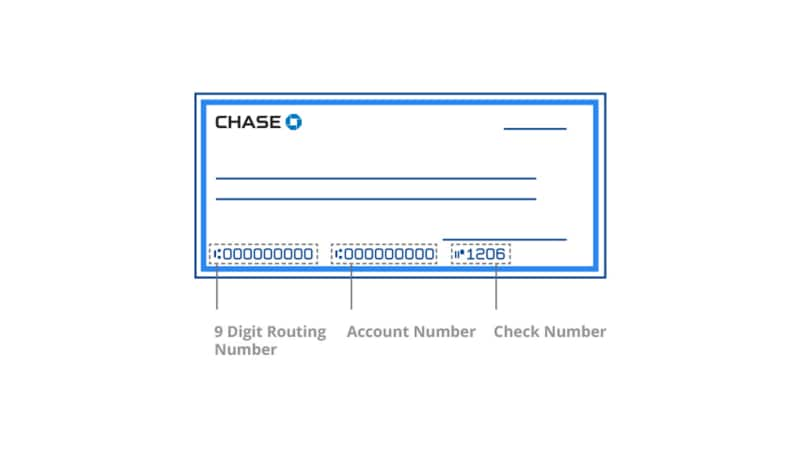What are some of the best checking account features?

A checking account is often one of first steps people take in the journey of personal finance. Opening a checking account can help in numerous ways, ranging from increased convenience, improved safety for your money and the opportunity to manage your finances in a brand-new way. Let’s explore how checking accounts may aid customers in nearly every aspect of personal finance and what some of the best checking account features may be for you.
1. Deposit features
A checking account can provide you with numerous ways to deposit funds. For example, when you set up direct deposits to your checking account you eliminate the need to physically deposit checks and you may have faster access to your funds, with money being deposited automatically. Additionally, by using direct deposit, you can help reduce the risk of lost or stolen checks.
Some banks also offer early direct deposit as a feature on some checking account types. Early direct deposit may provide access to funds earlier than you would have with traditional direct deposit. Through their respective mobile banking apps, some institutions may also provide mobile check deposit services that allow you to deposit physical checks digitally.
2. Bank bonuses
Another potential reason to consider opening a checking account is the possibility of a bonus. Some checking account offers will give you a cash bonus for opening a new account and meeting certain requirements, such as making a certain number of purchases with your debit card or setting up direct deposits.
3. Additional security
Keeping your money in a checking account affords it all the security that comes with a bank, helping to protect your funds from theft, natural disasters and other physical threats. A checking account doesn’t physically store your money in the same way that a safe or lockbox does. Instead, you’re depositing the money with the bank who holds an ‘account’ of your funds.
When you open a checking account, look for an account that is covered by FDIC insurance, which insures up to $250,000 per depositor per insured bank, up to the maximum amount allowed by law. This helps keep your money safe even if the institution were to close or go out of business.
4. ATM access
ATM access is a common reason many people open a new checking account. With it comes access to the bank’s ATM network and the perks that accompany it. Many ATMs let you withdraw and deposit cash and check your balance. This can be convenient if you need to access your money when the branch is closed or if you are in a location that is not near a branch.
In addition to providing convenient access to your money, using in-network ATMs may also help avoid certain fees for using out-of-network ATMs. Many banks offer free or reduced-fees to their customers using the bank’s in-network ATMs, which can save you money compared to using an out-of-network ATM.
5. Manage money
A checking account can help monitor your progress towards financial goals by providing a clearer picture of your spending and income. Whether you open a checking account online or in person, many financial institutions provide access to your account online or through a mobile app. This can help keep tabs on your account balance and track your progress. Meanwhile, tools like an autosave feature may help streamline your savings through automatic transfers.
You can set limits for different budget categories, such as housing, transportation and entertainment, or you can set target dates for certain account balances. For example, you might set a goal to save a certain amount of money each month, pay off a certain amount of debt, or reduce spending in a specific category. By tracking your progress and adjusting your budget as you go, a checking account may become a powerful financial tool.
6. Reinforced record-keeping
One of the benefits of a checking account is that it provides regular bank statements and transaction histories. These documents can be useful for tracking your spending, reconciling your account and keeping records for tax or other purposes.
Bank statements are typically issued on a monthly or quarterly basis and show a summary of your account activity throughout the statement period. They typically include a list of all the transactions that have taken place in your account, such as deposits, withdrawals and fees, as well as starting and ending balances and some personal information. While the way a bank issues statements varies from bank to bank, these statements can be accessed online or possibly mailed to you in paper form.
A transaction history, on the other hand, is a detailed list of just the transactions that have taken place in your account, including the date, amount and description of each transaction. Many checking accounts allow you to see your transaction history online, through a mobile app or at an ATM.
Essentially, a checking account can help provide an official paper trail for your financial transactions. These documents can serve as proof of payment or withdrawal and can be useful should any disputes, discrepancies or confusion arise.
7. Automated bill payment
When you open a checking account, you can usually set up automatic payments for recurring bills, such as your mortgage, utilities or credit card payments. This allows you to schedule payments in advance and helps keep your bills paid on time. Automating your bill payments can also help you avoid late fees and other penalties, as your bills will be paid automatically.
In addition to saving time, automating your bill payments through a checking account online can help ensure your bills are paid consistently and on schedule. This can help you better manage your budget and avoid overspending by keeping your routine finances running like clockwork.
8. Overdraft protection
Some financial institutions make overdraft protection available with their checking accounts. Overdraft protection is an optional service that allows the customer to assign back-up accounts to be drawn upon in the case of insufficient funds. This may come with a fee. It allows a transaction to be completed that would have otherwise been declined.
In summary
There are many reasons you may consider opening a checking account. From keeping your money safe, to aiding in financial management and helping you keep accurate records of your financial history, a checking account can help you build your finances and reach your goals. When looking for the best checking account for you, comparing the fees and features of different institutions and asking yourself what your own financial priorities are can help you make an informed choice.



